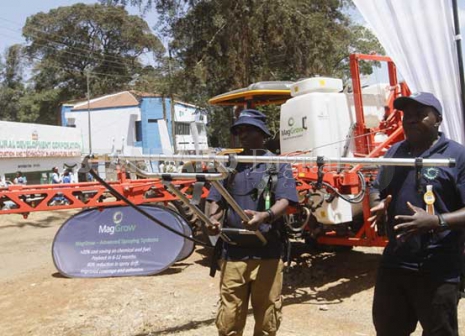×
The Standard e-Paper
Home To Bold Columnists

When farmers attend agricultural trade fairs, they are drawn to stands where the action is from cutting edge technology to new promising breeds of cattle and crops. And so it was at the ongoing ASK Nairobi International Trade Fair Jamhuri Park; farmers were flowing in stands that had sizzling agricultural stuff that promised to turn around their ventures.
Smart Harvest team was at the show to sample for our readers technology that stood out.